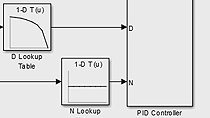EE Journal Chalk Talk: Simulation-Based Tuning of Power Electronics Controllers
Amelia Dalton, EE Journal
Simulation of power electronics, and power electronics digital controls specifically, offers many benefits. In this video we focus on using simulation for tuning digital power electronics controllers.
Digital controllers are increasingly used in power electronics and offer many advantages over analog control, including flexibility and adaptability. With digital control, controllers can be changed using a software update. Additionally, digital control allows for implementation of complex control algorithms such as gain-scheduling, MIMO control, and adaptive control.
These factors, together with decreasing costs of microcontrollers and FPGAs, are contributing to increasing adoption of digital control for power electronics system. If you are designing embedded software for your digital controller, you need to tune controller gains to ensure the control system meets the requirements. One option is to tweak the gain in software and test it on the physical prototype. However, this can result in the damage to your hardware, and does not guarantee the optimal design.
We consider how simulation models of power electronics can be leveraged for systematic tuning of controllers. We discuss and demonstrate several different methods for simulation-based tuning. These methods include an AC sweep method for obtaining average model representation of power electronics system, using system identification for obtaining a transfer function of power electronics power stage from measured input-output date, and PID auto-tuning for computing PID controller gains directly from a simulation model. We explain how each method works, and illustrate each method by using it to design controllers for a power converter modeled in Simulink.
Published: 1 Jul 2018





